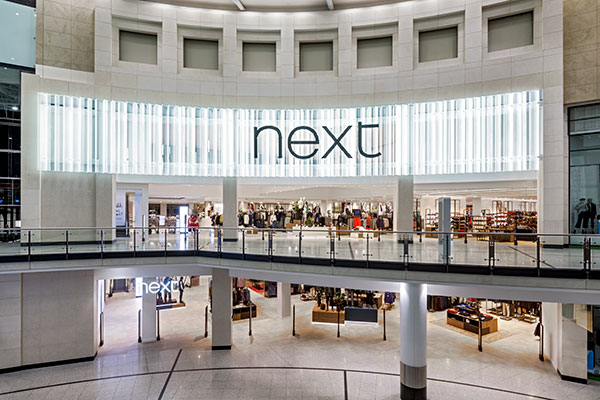Next enters recovery mode, but Christmas hasn’t come early
Clothing retailer boosted by online sales, but pandemic hits its share price.
28th October 2020 10:47
by Richard Hunter from interactive investor
Clothing retailer boosted by online sales, but pandemic takes toll on its share price.

Christmas has not quite come early for Next (LSE:NXT), but its outlook is promising ahead of the important retail season.
The highlights of the update are unquestionably the revisions to net debt and, in particular, the projected profit estimate.
In terms of the former, the number has improved since the last update and is now expected to reduce by £487 million to £625 million. Given the company’s access to credit of £1.6 billion, and its cash generative ability, this is a promising development.
Equally, the projection for full-year pre-tax profit has been increased to £365 million. At the previous update last month the figure was raised from £195 million to £300 million, and this additional increase based on the company’s central scenario is a further sign of recovery.
Even the revised figure remains far from the previous year’s number of £728 million, but given the fact that the pandemic has taken the ultimate toll on some of its competitors, for Next to be booking a profit of this size is testament to its enduring appeal.
The progress which the company had previously announced in September has continued, with full-price sales growing by a further 2.8% and total sales by 1.4%.
Within these numbers, the online business has confirmed its position as the jewel in the crown once more, with a spike in full price sales of 23% in the third quarter. Indeed, in the year to date the number is actually 1% ahead of the figure for last year. This may be an indication of the enforced changes in consumer habits, but nonetheless is an achievement given the general economic backdrop.
Retail has not fared so well, however, and a drop of 18% in the period pulls the overall figure down. The relative lack of shoppers in high streets and shopping centres, while slightly offset by improved out of town retail parks, is not only a drag on performance but may also prove to be a sign of things to come.
Meanwhile, finance interest income fell by 13% as fewer customers chose to make purchases using credit, and there were lower balances generally as some of the outstanding monies were paid down.
- ii view: why it's boom time at Nike
- Take control of your retirement planning with our award-winning, low-cost Self-Invested Personal Pension (SIPP)
More positively, Next has not yet seen any meaningful rises in defaults, but has chosen to leave its provision of £20 million in place for the time being as insurance against any economic deterioration in the coming months.
The outlook is almost entirely muddied by events outside of the company’s control, most notably the effects of any further lockdowns and the outcome of the Brexit negotiations between the UK and the EU.
Even so, the scenario-based model which Next has previously presented in depth aims to cover all bases. This includes a downside scenario which allows for a decline of 20% in sales for the final quarter of the year.
Unfortunately, the uncertainty which the pandemic has brought to forecasts has had its impact on a share price which remains down by 13% in the year to date, even after a spike of 80% since its low in April.
Over the last year, the shares have outperformed on a relative basis, but remain down by 9% as compared to a decline of 22% for the wider FTSE 100 index.
With high expectations attached to the stock and precarious economic prospects ahead, the long-standing market consensus of the shares as a ‘hold’ is likely to remain in place, despite Next’s best efforts.
Full performance can be found on the company or index summary page on the interactive investor website. Simply click on the company's or index name highlighted in the article.
These articles are provided for information purposes only. Occasionally, an opinion about whether to buy or sell a specific investment may be provided by third parties. The content is not intended to be a personal recommendation to buy or sell any financial instrument or product, or to adopt any investment strategy as it is not provided based on an assessment of your investing knowledge and experience, your financial situation or your investment objectives. The value of your investments, and the income derived from them, may go down as well as up. You may not get back all the money that you invest. The investments referred to in this article may not be suitable for all investors, and if in doubt, an investor should seek advice from a qualified investment adviser.
Full performance can be found on the company or index summary page on the interactive investor website. Simply click on the company's or index name highlighted in the article.